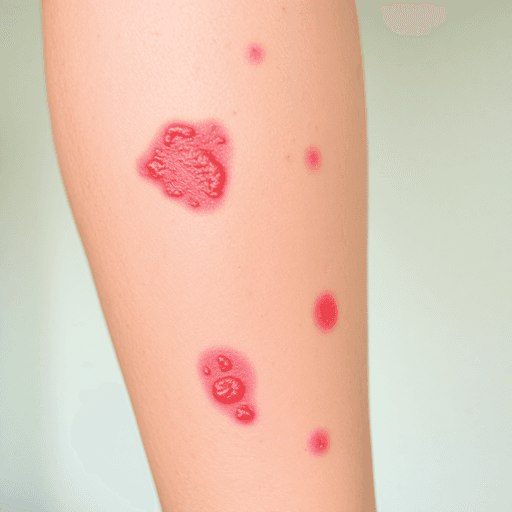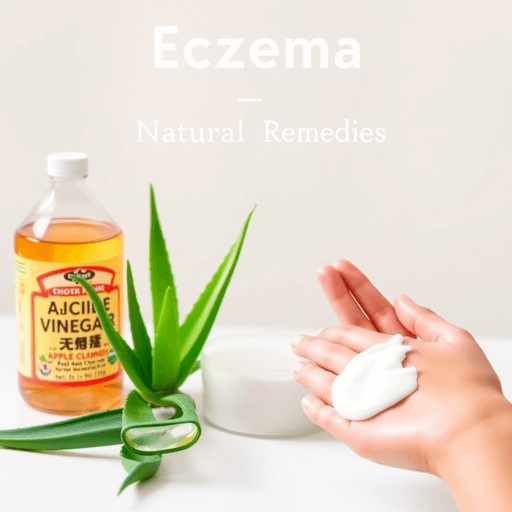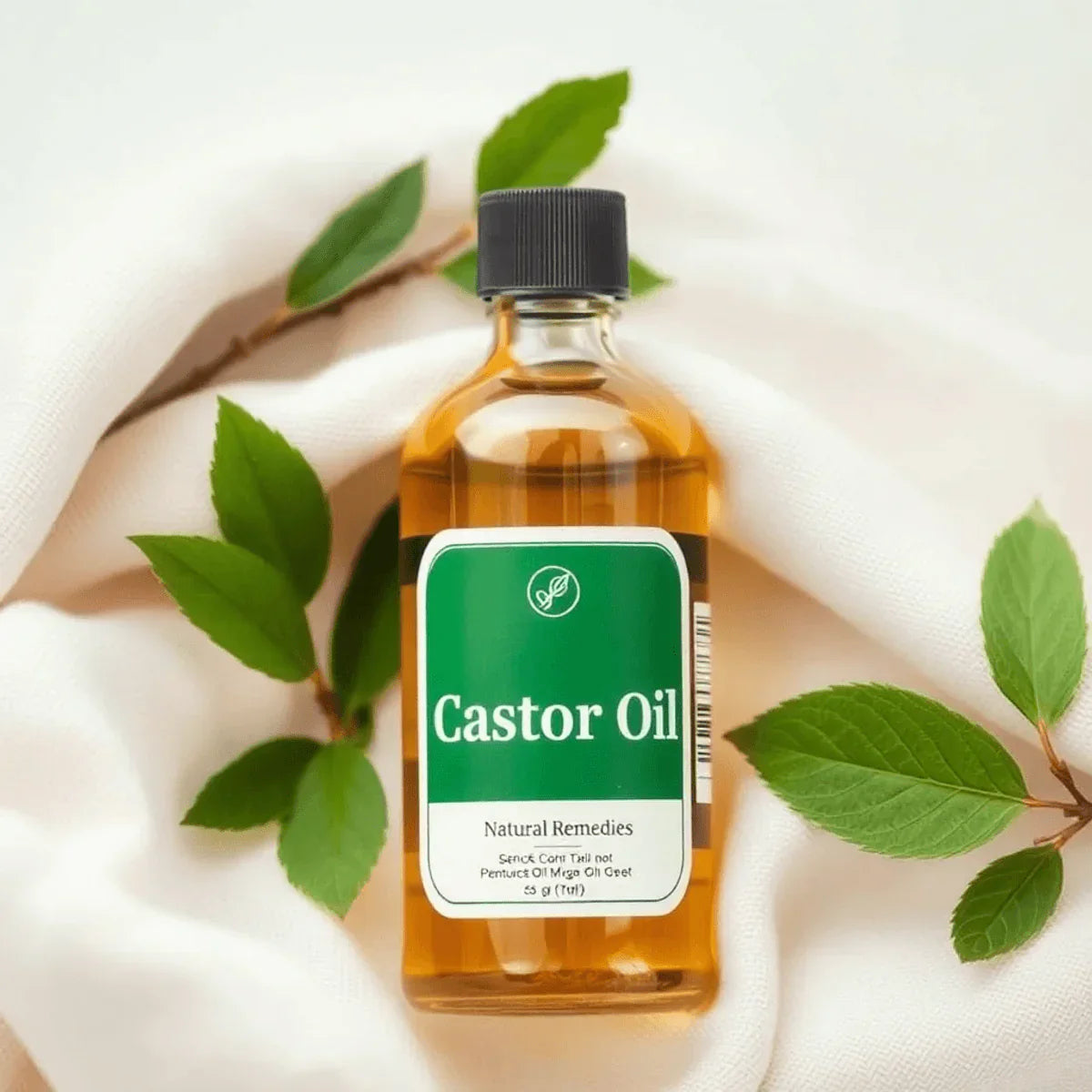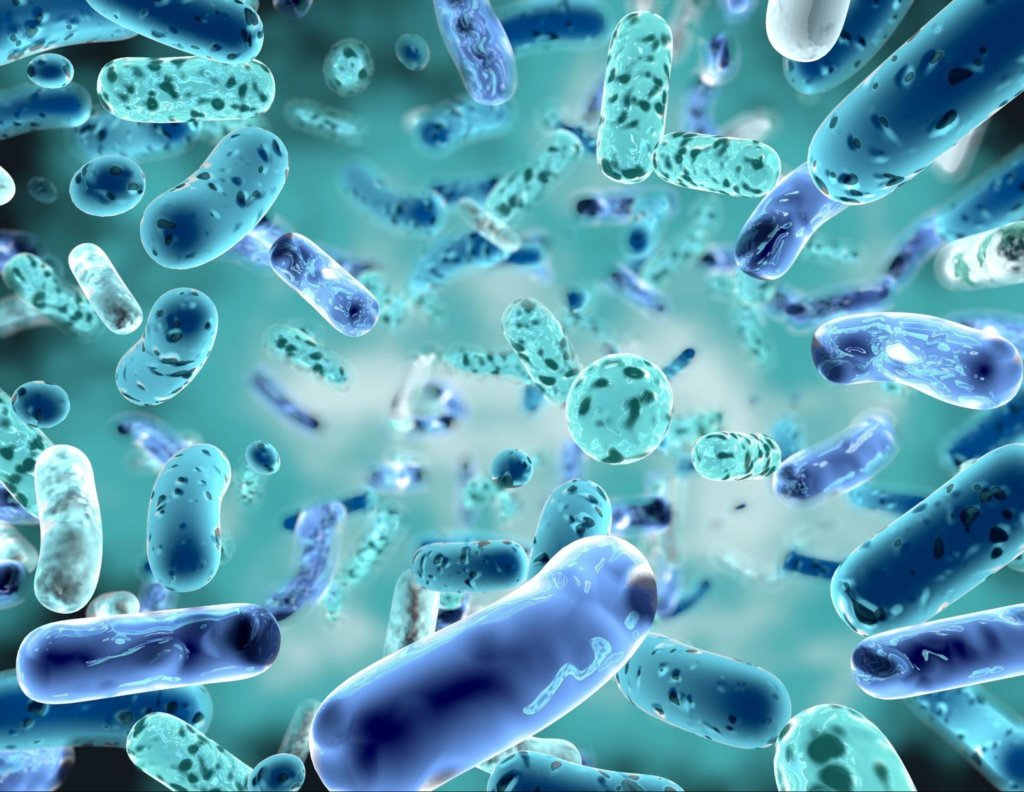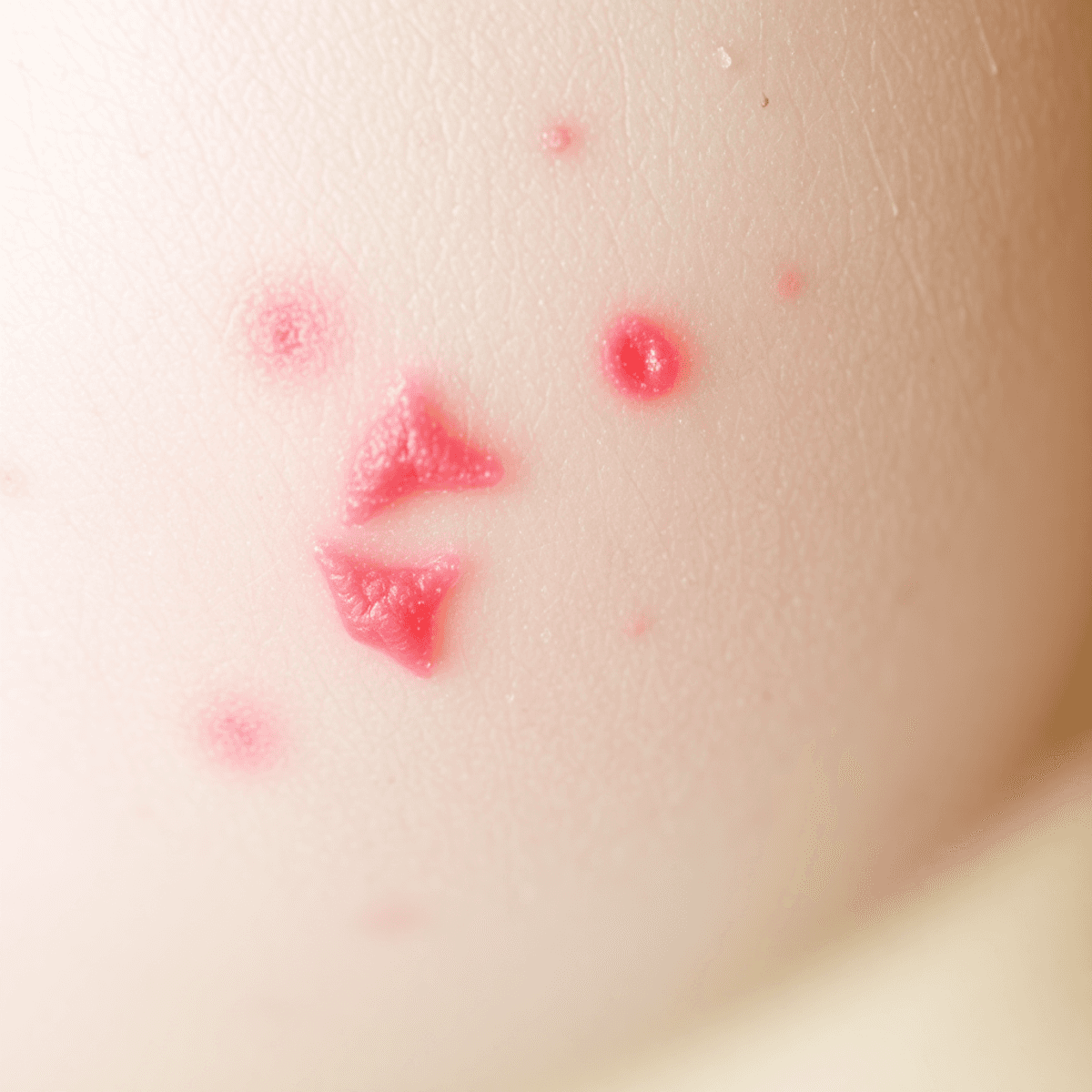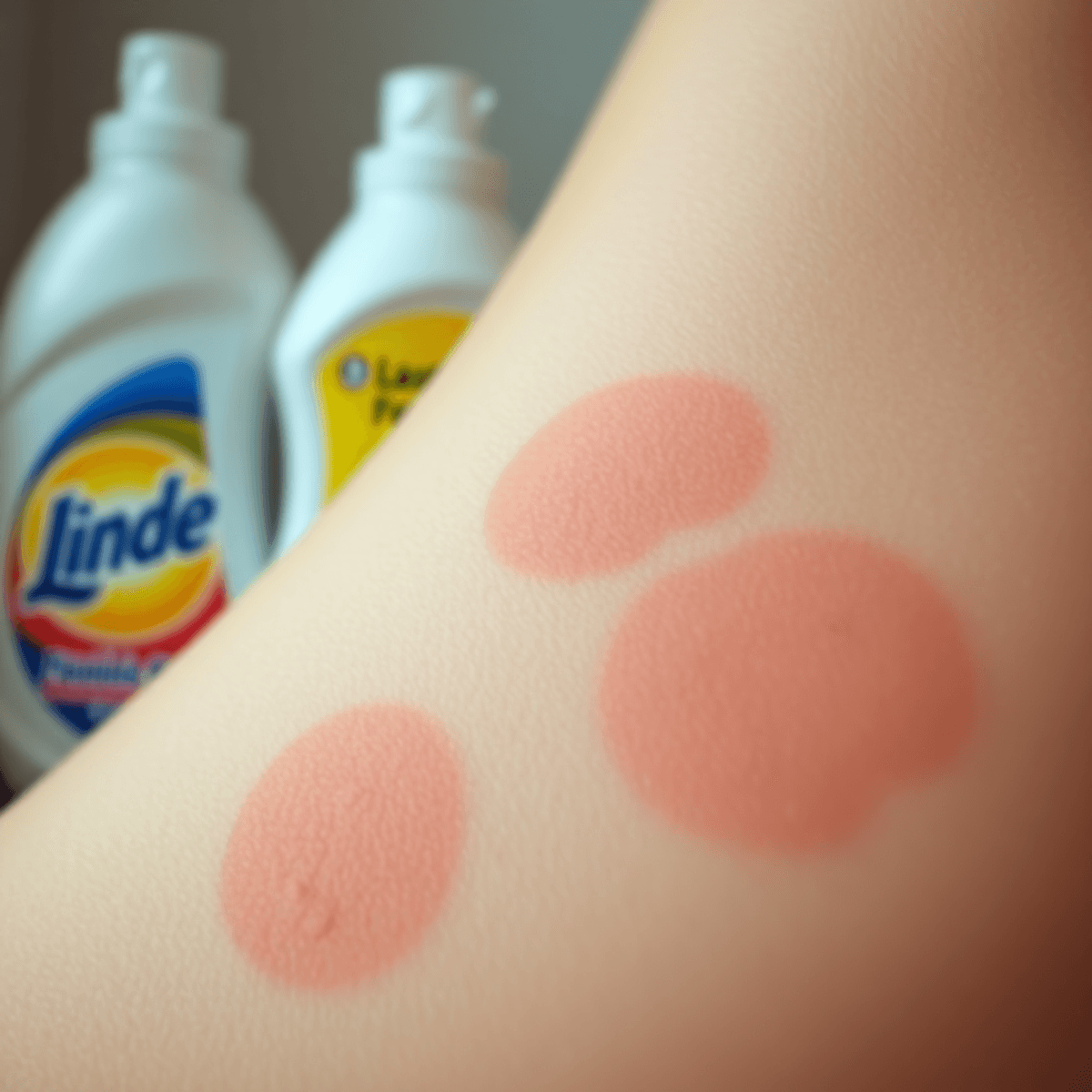10 Tips to Heal Your Eczema: A Comprehensive Guide
Introduction
Eczema, also known as atopic dermatitis, is a long-lasting skin condition that causes dry patches, redness, and constant itching. It affects millions of people worldwide, impacting both physical comfort and emotional well-being. The persistent itch and inflammation can disrupt daily life, leading to discomfort and sleep disturbances. Managing eczema requires understanding its underlying triggers and implementing effective treatment strategies.
In this article, you will discover 10 practical tips designed to help you heal your eczema effectively. From choosing the right fabrics to stress management techniques, these insights provide a comprehensive approach to alleviating symptoms. Whether you're seeking the best eczema treatment or exploring natural remedies for eczema, this guide aims to empower you with information and strategies for managing seborrheic dermatitis and other forms of eczema. Embrace a holistic treatment plan that addresses both environmental factors and personal habits to find relief and improve your skin health.
Understanding Eczema
Eczema is a term that refers to several long-lasting skin conditions. It mainly appears as dry patches, redness, and itchiness. The most common type of eczema is atopic dermatitis, which is known to have genetic links and can be triggered by environmental factors. You can find out more about what causes it and how to treat it effectively in this article on Atopic Eczema and Dermatitis.
Other Types of Eczema
In addition to atopic dermatitis, there are other types of eczema:
- Seborrheic Dermatitis: This type usually affects oily areas like the scalp and face.
- Dyshidrotic Eczema: It is characterised by small blisters on hands and feet.
- Discoid Eczema: This type is notable for its coin-shaped spots.
Each type of eczema requires specific treatments. For example, dyshidrotic eczema treatment focuses on relieving symptoms with moisturisers or corticosteroids. Management of atopic conditions such as atopic eczema often involves avoiding irritants and keeping the skin hydrated. This is where natural remedies like Crema di Matteo, which contains 95% natural ingredients, come into play.
Challenges in Treating Infant Eczema
Treating eczema in infants can be particularly difficult due to their sensitive skin. It requires the use of gentle products and care routines such as using specialised body washes designed for eczema-prone skin.
Common Triggers of Eczema Flares
The triggers for eczema flare-ups can vary but often include:
- Allergens (e.g., pollen, dust mites)
- Stress
- Harsh soaps or detergents
- Temperature extremes
The Role of Genetics and Environment in Eczema
Genetics plays a significant role in determining who is likely to develop eczema; having a family history can increase susceptibility. Environmental factors also worsen this condition, leading to flare-ups caused by pollution or allergens.
Understanding these factors is important for effectively managing eczema symptoms across different types, such as treatment for eczema on face or hand eczema treatment.
1. Stop Scratching: Breaking the Itch-Scratch Cycle
Eczema sufferers know all too well the relentless itch-scratch cycle, where scratching leads to further inflammation, worsening the condition. This cycle can be challenging to break, yet managing it is crucial for healing.
Understanding the Impact
Scratching might provide temporary relief but ultimately exacerbates inflammation. This continual irritation can worsen eczema, making it harder for the skin to heal.
Techniques to Manage Itching Without Scratching
- Apply Moisturisers: Use products free from fragrances and dyes. A recommended choice is a moisturiser with colloidal oatmeal, which soothes and protects the skin.
- Cold Compresses: Apply a cool, damp cloth to the itchy area for relief.
- Distraction Techniques: Engage in activities that keep your hands busy, such as squeezing a stress ball or knitting.
Taking these steps can help alleviate itching sensations and disrupt the itch-scratch cycle effectively.
2. Dress for Success: Choosing the Right Fabrics
For those dealing with eczema, choosing the right clothing can make a significant difference in managing flare-ups and discomfort. Tight and rough fabrics often worsen eczema symptoms by causing friction and irritation on sensitive skin. Wool, for instance, is particularly notorious for aggravating the skin due to its coarse fibres.
To ensure maximum comfort and breathability, it’s advisable to opt for loose-fitting garments. Selecting fabrics that are gentle on the skin is crucial. Here are some recommended options:
- Cotton: Known for its softness and breathability, cotton is less likely to irritate sensitive skin.
- Bamboo: This fabric is hypoallergenic, making it a great choice for eczema sufferers.
- Silk: The smooth texture of silk reduces friction against the skin.
By carefully considering your wardrobe choices, you can significantly reduce the impact of fabric sensitivity on your eczema journey.
3. Wash Your Worries Away: Preparing New Clothes for Wear
When it comes to managing eczema, the materials in your clothing play a significant role. Formaldehyde and dyes used in fabric processing can be particularly problematic for sensitive skin, often leading to irritation and exacerbating eczema symptoms. Allergens in clothing are a hidden culprit that can trigger discomfort.
To protect your skin from potential irritants:
- Wash new clothes before wearing them. This simple step helps to remove residual chemicals like formaldehyde and excess dyes, especially those vibrant blue hues notorious for causing skin irritation.
- Use a mild, fragrance-free detergent to minimise any additional risk of irritation during the washing process.
- Consider running your new garments through an additional rinse cycle to ensure all allergens and irritants are thoroughly washed out.
By adopting these practices, you not only reduce the risk of skin irritation but also enhance overall comfort, essential for anyone dealing with eczema.
4. Create a Calm Climate: Regulating Temperature and Humidity Levels
Eczema-prone skin is highly sensitive to extreme temperatures and humidity. When the environment is too hot and humid, vasodilation occurs at the skin's surface. This leads to increased perspiration, which can irritate the skin and deplete its natural lipid barrier. On the other hand, cold, dry climates draw moisture out of the skin, leading to dryness and potential flare-ups.
To create a soothing environment for your skin, consider these practical tips:
- Maintain Optimal Room Temperature: Keep your living spaces at a comfortable temperature that avoids extremes. Use fans or air conditioning in the summer and heaters in the winter to maintain balance.
- Use Humidifiers: If you live in a dry climate, introducing a humidifier can help maintain skin-friendly humidity levels. A cool mist humidifier in your bedroom during sleep can significantly improve ambient humidity.
- Layer Clothing: Adjust your clothing layers according to temperature changes throughout the day to prevent overheating or exposure to cold.
These strategies play a crucial role in severe eczema treatment by reducing environmental stressors that contribute to flare-ups. By regulating your surroundings, you provide your skin with an optimal condition that supports its natural healing processes.
5. Bathe with Care: Cleansing Techniques That Work for Eczema-Prone Skin
Cleansing plays a crucial role in managing eczema, yet improper bathing can worsen your skin condition. It's important to approach this daily routine strategically to maintain healthy skin without triggering flare-ups.
Key Bathing Techniques for Eczema:
- Short Showers: Limit showers to less than 10 minutes. This prevents the skin from losing essential moisture and lipids that help keep the skin barrier intact.
- Lukewarm Water: Avoid extremes of water temperature. Hot water can strip away natural oils, while cold water might not effectively remove irritants like sweat or allergens.
- Gentle Body Washes: Opt for non-soap cleansers or gentle body wash products specifically formulated for sensitive skin. Harsh soaps can erode the lipid barrier, worsening eczema symptoms.
Considerations Post-Bathing:
- After cleansing, always apply a moisturiser immediately to damp skin. This step is crucial in locking in moisture and preventing trans-epidermal water loss, thereby protecting the skin barrier.
- If you've engaged in activities like swimming or exercising, rinse off promptly to remove chlorine or sweat residues, which could irritate eczema-prone skin.
By following these bathing techniques, you can effectively cleanse your skin while minimising the risk of eczema flare-ups.
6. Moisturise Like a Pro: The Power of Post-Bath Hydration
Applying moisturiser immediately after bathing is essential for locking in moisture effectively. Known as the soak and smear technique, this method capitalises on the skin's dampness to enhance hydration retention. Here's why it's beneficial:
- Prevents Trans Epidermal Water Loss (TEWL): When your skin is still damp, applying a moisturiser helps prevent TEWL, a process where water evaporates from the skin surface, contributing to dryness and irritation.
- Optimises Humectant Efficacy: Moisturisers often contain humectants like glycerin, which attract water. Applying them to damp skin maximises their ability to draw and retain moisture.
- Supports Lipid Barrier Restoration: Many moisturisers include ingredients like ceramides that aid in repairing the lipid barrier, crucial for eczema-prone skin. Locking in moisture post-bath supports this restoration process.
Using a thick balm or ointment can act as a second skin, sealing in hydration and protecting against irritants. This practice ensures your skin remains supple and less prone to eczema flare-ups.
7. Stress Less, Heal More: The Mind-Skin Connection in Eczema Management
When managing eczema, the connection between stress levels and inflammation in the skin cannot be overlooked. Stress management for eczema is essential, as emotional well-being significantly influences skin health. Stress triggers the release of hormones that can escalate inflammation, often leading to flare-ups.
To effectively manage stress and subsequently aid in eczema treatment, consider incorporating relaxation techniques into your daily routine:
- Mindfulness Practices: Regular mindfulness exercises can help reduce stress levels. By focusing on the present moment, you can minimise anxious thoughts that may contribute to skin inflammation.
- Engage in Relaxing Activities: Activities like yoga or meditation not only promote relaxation but also support better sleep quality and skin health.
- Quality Sleep: Ensuring you get adequate rest is crucial, as lack of sleep can exacerbate extreme eczema symptoms. Aim for a consistent sleep schedule to improve both mental health and skin condition.
For parents dealing with child eczema treatment, creating a calming bedtime routine is important. A soothing voice and stress-free environment can make a significant difference in managing your child's eczema symptoms. An effective eczema treatment cream post-bath can also aid in maintaining skin health while reducing the potential impact of stress on the condition.
It's also worth exploring the power of natural health, which includes using natural products that can provide relief from conditions like eczema and promote overall well-being.
8. Allergy-Proof Your Home: Minimising Environmental Triggers That Worsen Eczema Flare-Ups
Environmental allergens can make eczema flare-ups worse. Common allergens like dust mites, pet dander, pollen, and mould spores can trigger or worsen eczema symptoms. That's why it's important to create a home environment that is free from these allergens.
How Dust Mites and Mold Affect Your Skin Health:
- Dust Mites are tiny creatures that live in bedding and furniture, feeding on dead skin cells. They can cause skin irritation and worsen eczema.
- Mold Spores thrive in damp areas and can lead to allergic reactions that negatively impact your skin health.
Practical Tips for Reducing Allergen Exposure at Home:
- Regular Cleaning:
- Vacuum bedroom furniture, including headboards, frequently.
- Wash bedding in hot water weekly to eliminate dust mites.
- Hypoallergenic Covers:
- Use covers on pillows and mattresses to create a barrier against dust mites and allergens.
- Pet Management:
- Regularly groom pets to minimise dander.
- Avoid allowing pets into the bedroom or sleeping area.
- Humidity Control:
- Use dehumidifiers in areas prone to dampness to prevent mould growth.
By following these tips, you can significantly reduce allergen exposure in your home, which will help you manage your eczema more effectively.
9. Simplify Your Skincare Routine: Less is More for Eczema-Prone Skin
For those dealing with eczema, a streamlined skincare routine can be incredibly beneficial in reducing the risk of irritation. By limiting the number of products you apply to your skin, you minimise exposure to potential irritants often found in many skincare formulations. This approach is especially crucial when managing sensitive skin.
Recommended Minimal Skincare Routine:
- Gentle Cleanser: Opt for gentle cleansers for eczema that are non-soap-based to avoid stripping away essential lipids from your skin's barrier. Look for products that are free from fragrances and dyes, as these additives can exacerbate eczema symptoms.
- Moisturiser: A high-quality moisturiser is essential to lock in moisture and protect your skin’s barrier. Choose a product that contains ingredients like ceramides or colloidal oatmeal, which are known to soothe and repair eczema-prone skin. You can find suitable options in our eczema treatment collection.
- Sunscreen: Even sensitive skin requires protection from harmful UV rays. Mineral sunscreens, containing zinc oxide or titanium dioxide, are often better tolerated by those with eczema as they are less likely to cause stinging or irritation.
Focusing on these three essential products — cleanser, moisturiser, and sunscreen — helps maintain the health of your skin while avoiding unnecessary compounds that could trigger flare-ups. This minimalistic approach not only simplifies your daily routine but also enhances the efficacy of each product used.
Moreover, if you also experience rosacea alongside eczema, it's important to understand how to manage it effectively. For this, you might find our complete guide to rosacea helpful as it covers causes, symptoms, and treatments for this skin condition.
10. Seek Professional Help if Needed: When to Consult a Dermatologist or Allergist
Knowing when to seek medical help for eczema is important. If your eczema severely affects your quality of life or continues despite careful self-care, it might be time to see a healthcare professional. Knowing when to see a doctor for eczema becomes crucial in these situations.
Healthcare providers can offer specialised treatments tailored to your needs:
- Topical Corticosteroids: Often prescribed to reduce inflammation and itchiness, these are potent medications requiring careful application under medical guidance.
- Antihistamines: These can be effective in managing itch by mitigating the body's histamine response.
- Phototherapy: Used in more severe cases, this treatment involves controlled exposure to ultraviolet light.
- Biologics and Immunosuppressants: For particularly stubborn or extensive eczema, these advanced treatments may be considered.
Understanding these options ensures you're informed about potential paths to relief. A dermatologist or allergist can provide not only treatment but also insights into managing triggers and maintaining skin health long-term. Taking this step can significantly alleviate symptoms and improve your overall well-being.
FAQs
What is eczema and what are its common types?
Eczema, also known as atopic dermatitis, is a long-lasting skin condition characterised by inflammation, redness, and itching. In addition to atopic dermatitis, there are other types of eczema including contact dermatitis, dyshidrotic eczema, and nummular eczema.
What are some common triggers for eczema flare-ups?
Common triggers for eczema flare-ups can vary from person to person but often include allergens such as pollen, pet dander, certain foods, stress, temperature changes, and harsh soaps or detergents.
How can I break the itch-scratch cycle associated with eczema?
To break the itch-scratch cycle, it is essential to stop scratching. This can be achieved by keeping nails short, using cold compresses to soothe the itch, and applying topical treatments as recommended by a healthcare professional.
What fabrics should I choose if I have eczema?
Choosing the right clothing is crucial for managing eczema. Opt for soft, breathable fabrics like cotton and avoid rough materials such as wool or synthetic fibres that can irritate sensitive skin.
How important is moisturising for individuals with eczema?
Moisturising is extremely important for individuals with eczema. Applying a moisturiser immediately after bathing helps to lock in hydration and create a protective barrier on the skin to prevent dryness and irritation.
When should I seek professional help for my eczema?
You should seek professional help from a dermatologist or allergist if your eczema is severe, persistent, or not responding to over-the-counter treatments. Additionally, if you experience signs of infection or your symptoms significantly impact your quality of life, it's important to consult a healthcare provider.


